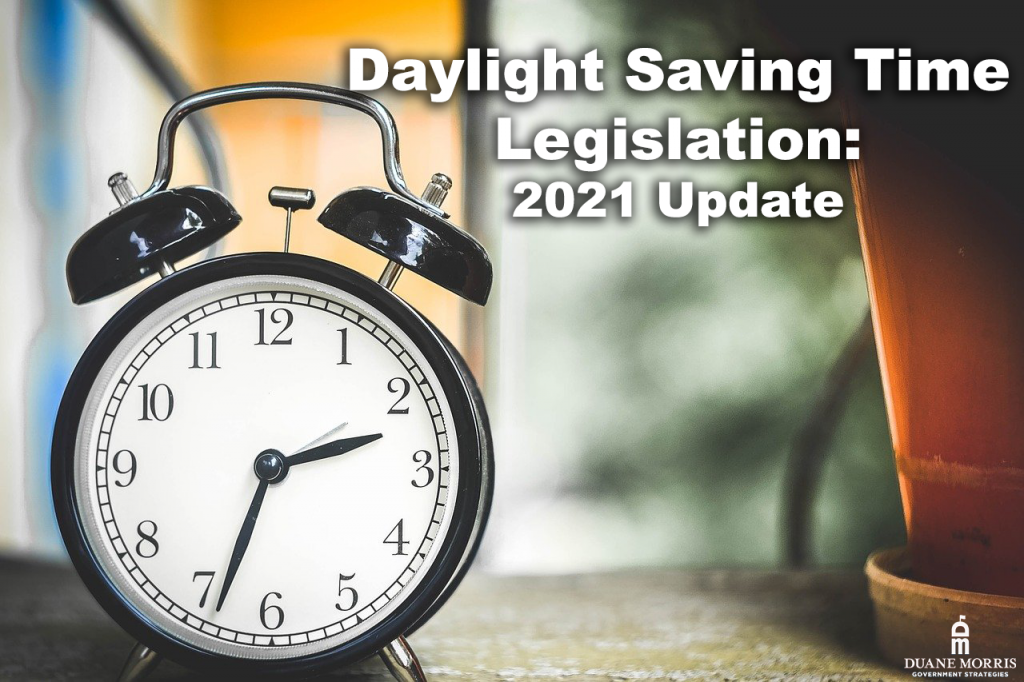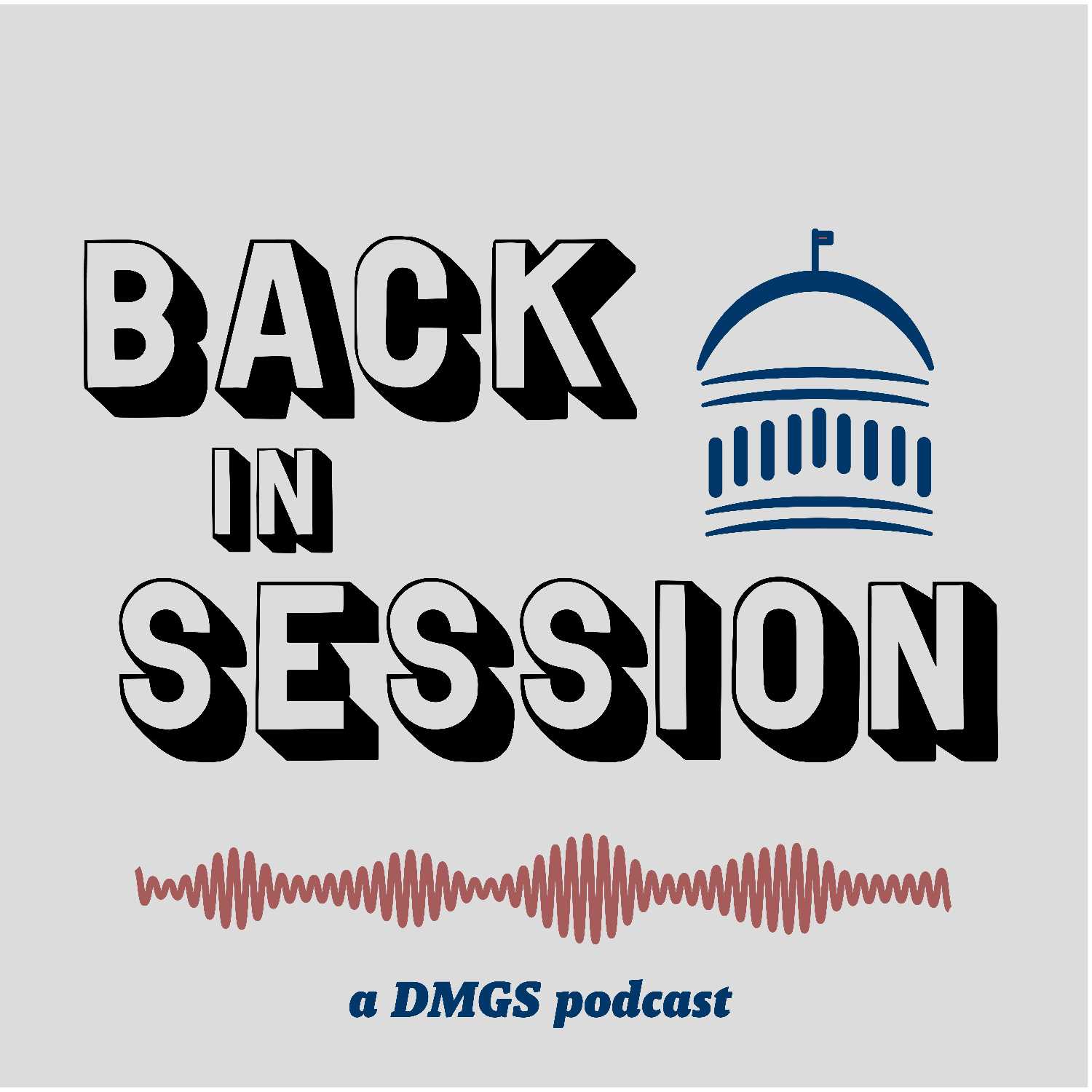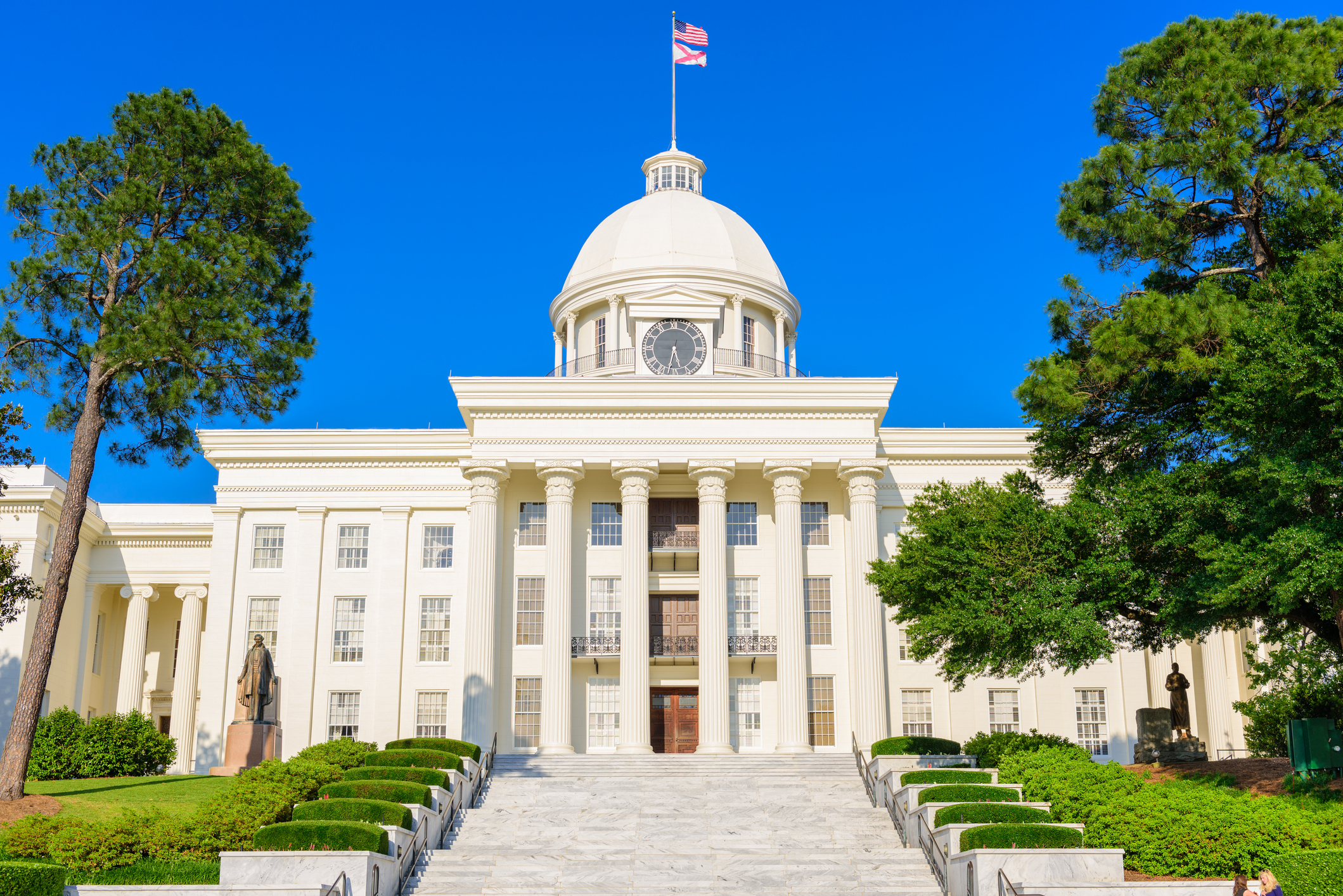Did you remember to set your clocks back one hour today? Some state lawmakers are hoping you won’t have to worry about changing your clocks two times a year, as we noted last year around this time. In just the last four years, 19 states have passed Daylight Saving Time legislation providing for year-round DST, as long as Congress were to allow it.
To refresh, the United States first implemented daylight saving time (DST) in 1918 as a wartime measure during the First World War, not to benefit farmers as many today think. Congress repealed DST in 1919 following the war, but some states and cities continued the practice. DST returned for the Second World War but was repealed again following the end of the war. DST, as we know it today, came to be in 1966 with the Uniform Time Act. DST was observed from the first Sunday of April through the last Sunday of October, until President George W. Bush extended it by four weeks, beginning in 2007.
However, not all states must follow DST. Federal law does allow a state to exempt itself from observing Daylight Saving Time, as long as the state’s lawmakers take action to do so. Further, federal law does not allow for full-time Daylight Saving Time.
Arkansas: Permanent DST Legislation
The Arkansas House passed HB 1017 in February by a vote of 71-5. The bill would have established DST as the permanent time for Arkansas if Congress were to allow it. The bill died in the Senate in October.
Florida: 2018 Daylight Saving Time Legislation
Florida passed a bill, HB 1013, in 2018, providing for permanent DST. However, Florida residents still must change their clocks twice a year because federal action is required for Florida’s law to mean anything. Without action by Congress allowing states to establish permanent DST, Floridians will not be able to enjoy permanent DST any time soon.
Maine: Study on Standard Time
Maine lawmakers passed LD 826 this year, which became law without the governor’s signature. The bill directs the University of Maine System to study and analyze the potential effects on public health and Maine’s economy if the state were to adopt permanent Atlantic Standard Time. The study must also determine if such adoption will serve the convenience of commerce as required by U.S. DOT.
Massachusetts: Permanent Atlantic Standard Time
S. 2073 was introduced by lawmakers in March of 2021 and scheduled for a virtual hearing in early October. The bill would establish Atlantic Standard Time as Massachusetts’ standard time and would exempt the state from the change to Daylight Saving Time. The bill would only take effect when New Hampshire, Maine, and Rhode Island enact an agreement adopting “Atlantic Standard Time.”
Minnesota: Lawmakers Advance Year-Round DST Legislation
Minnesota lawmakers advanced HF 72, which was included in SF 2 in the 1st special session. The bill would establish advanced standard time/DST year-round as long as the federal government authorizes it.
Nebraska: Permanent DST Bill Requires Neighboring States to Do the Same
Lawmakers in Nebraska held a hearing in February 2021 to address LB 283. This piece of DST legislation would implement year-round DST in the state. However, the bill would not take effect until the federal government were to allow states to do so, and until two neighboring states were to adopt similar year-round DST legislation.
Pennsylvania: DST Legislation
Lawmakers in the Keystone State have introduced at least four pieces of Daylight Saving Time legislation.
Notably, the state House passed HB 335, modeled after the Florida law, to create permanent DST year-round as long as Congress authorizes it. The bill, which passed the House 103-98, remains in the Senate State Government Committee. According to the bill sponsor, studies show that permanent DST will save energy, reduce traffic crashes, reduce crime, and overall lead to more healthy lifestyles.
Two pieces of DST legislation, HB 846 and SB 384, would eliminate DST in Pennsylvania altogether and place Pennsylvania on Standard Time permanently. While neither bill has advanced past their respective committees of introduction, the House sponsor said he prefers making standard time permanent over permanent DST is because permanent DST would require school-aged children to walk to school or wait for their bus in the dark during the winter.
Additionally, the Senate State Government Committee passed Senate Resolution 36 in March, urging Congress to extend DST throughout the year across the country. The full Senate has not yet voted on the resolution.
South Dakota: Permanent Daylight Saving Time Legislation
Lawmakers in South Dakota introduced House Bill 1214 this session to allow for permanent DST as long as Congress were to authorize it. The bill did not advance this session.
Vermont: Bill Ending DST
H. 168 was introduced by Vermont lawmakers in February of 2021. The bill would end DST in the state and establishes U.S. Eastern Standard Time as the standard time within Vermont. However, if passed, the bill would take effect on January 1 of the year following the adoption of full year-round Eastern Standard Time in Connecticut, Maine, Massachusetts, New Hampshire, and Rhode Island.
Virginia: Resolution to Study Ending or Keeping DST
House Joint Resolution 541 was introduced by Virginia lawmakers in early 2021 that would have requested the Commonwealth’s Secretary of Commerce and Trade to study the effects of Virginia’s continued observance of DST and the potential consequences to either use standard time or DST year-round.
Wyoming: Mountain Time
Wyoming lawmakers introduced HB0071 in January of 2021. The bill would establish Mountain Standard Time as the uniform state time for Wyoming and all of the state’s political subdivisions.
This piece of Daylight Saving Time legislation did not advance this session.
Latest News
As legislative sessions kick off across the country, advocacy professionals must navigate diverse political landscapes, shifting priorities, and fast-moving policy developments. In this episode of Back in Session, hosts Ryan Stevens and Ryan DeMara sit [...]
Photo credit: iStock.com/hapabapa As the year draws to a close, state legislatures across the country are gearing up for their upcoming sessions in 2025. A critical aspect of this preparation is state legislative prefiling, a [...]
Photo credit: iStock.com/zrfphoto In the State of Washington, members of the General Assembly can pre-file legislation in the month before a legislative session begins. Beginning on December 4, 2023, lawmakers began pre-filing dozens of bills. [...]
Photo credit: iStock.com/SeanPavonePhoto On December 1, 2023, Alabama state lawmakers began pre-file legislation for the 2024 session, when their bills will receive an official introduction. In total, 35 bills have been pre-filed (30 in the [...]







Stay In Touch